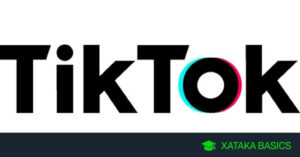Federal judges unanimously voted to uphold a TikTok ban, saying the platform could be temporarily unavailable in the U.S. unless it’s sold to an American owner next month.
President-elect Trump could grant an extension “based upon progress” toward the divestiture order, the opinion says.
The legislation, passed in April by Congress and signed into law by President Biden, requires TikTok to sell to an American owner by Jan. 19, 2025, or face a ban.
A panel of three federal appeals court judges ruled unanimously Friday to uphold a law that could potentially ban TikTok in the United States.
The legislation, passed in April by Congress and signed into law by President Joe Biden, requires TikTok’s Chinese owner, ByteDance, to sell it to an American owner by Jan. 19, 2025, or face an effective ban.
In a majority opinion, the U.S. Court of Appeals for the District of Columbia Circuit said, “We recognize that this decision has significant implications for TikTok and its users.” If the platform does not divest, the court said it “will effectively be unavailable in the United States, at least for a time.”
“Consequently, TikTok’s millions of users will need to find alternative media of communication,” the opinion continued.
Friday’s decision sets the table for TikTok to take its case to the Supreme Court.
In a statement, TikTok pinned its hopes on the Supreme Court ruling in its favor.
Federal appeals court upholds law that could ban TikTok, say platform could be unavailable in U.S.
The D.C. Circuit voted to uphold the ban, citing national security threats and the collection of data from TikTok users.
A panel of three federal appeals court judges ruled unanimously Friday to uphold a law that could potentially ban TikTok in the United States.
The legislation, passed in April by Congress and signed into law by President Joe Biden, requires TikTok’s Chinese owner, ByteDance, to sell it to an American owner by Jan. 19, 2025, or face an effective ban.
In a majority opinion, the U.S. Court of Appeals for the District of Columbia Circuit said, “We recognize that this decision has significant implications for TikTok and its users.” If the platform does not divest, the court said it “will effectively be unavailable in the United States, at least for a time.”
“Consequently, TikTok’s millions of users will need to find alternative media of communication,” the opinion continued.
TikTok offices in Culver City, Calif.Bing Guan / Bloomberg via Getty Images file
Friday’s decision sets the table for TikTok to take its case to the Supreme Court.
In a statement, TikTok pinned its hopes on the Supreme Court ruling in its favor.
“The Supreme Court has an established historical record of protecting Americans’ right to free speech, and we expect they will do just that on this important constitutional issue,” the company said in the statement.
“Unfortunately, the TikTok ban was conceived and pushed through based upon inaccurate, flawed and hypothetical information, resulting in outright censorship of the American people.
The TikTok ban, unless stopped, will silence the voices of over 170 million Americans here in the US and around the world on January 19th, 2025.”
The opinion said a 90-day extension can be granted “based upon progress” toward the divestiture order.
During his campaign, President-elect Donald Trump, who takes office Jan. 20, said he would “save TikTok” from a ban if elected, though opinions among his announced Cabinet members are mixed on whether TikTok should face a ban.
TikTok argued to the judges that the order to sell the platform was unconstitutional, violating its First Amendment rights, and that China does not influence its algorithms.
TikTok’s creators have also argued that the platform has been unfairly targeted, noting that user data from other U.S. tech companies has been collected and sold around the world.
The majority opinion said: “The First Amendment exists to protect free speech in the United States.
“Here the Government acted solely to protect that freedom from a foreign adversary nation and to limit that adversary’s ability to gather data on people in the United States.”




